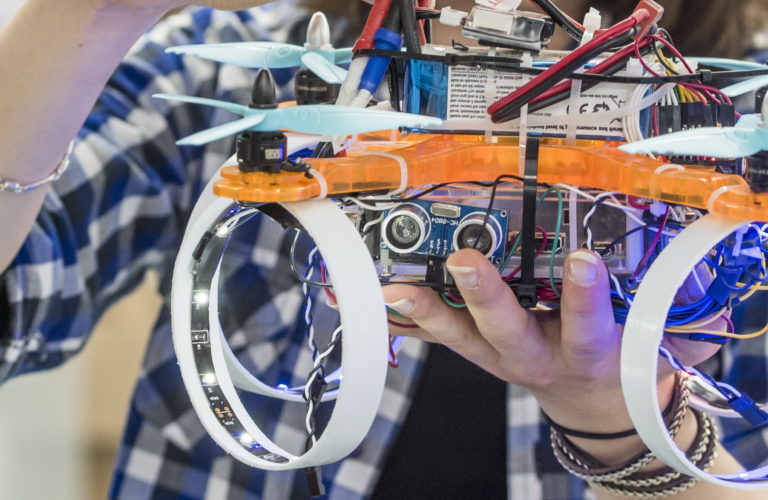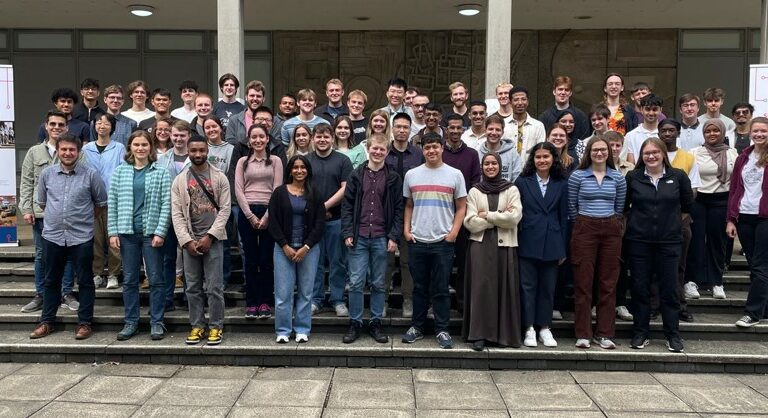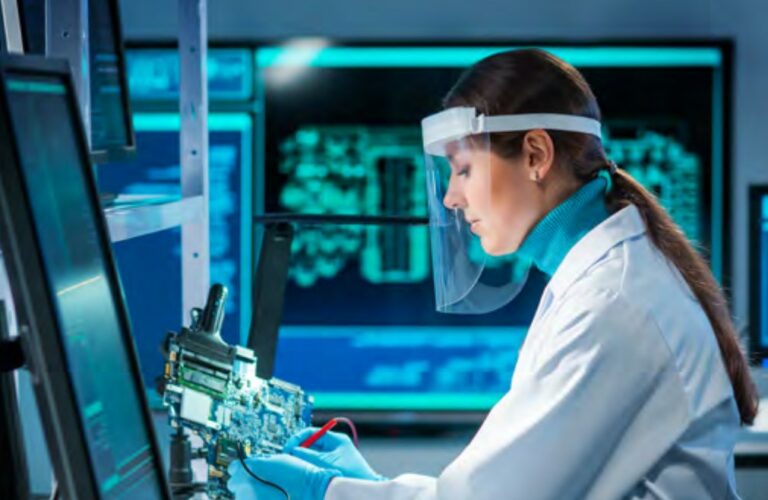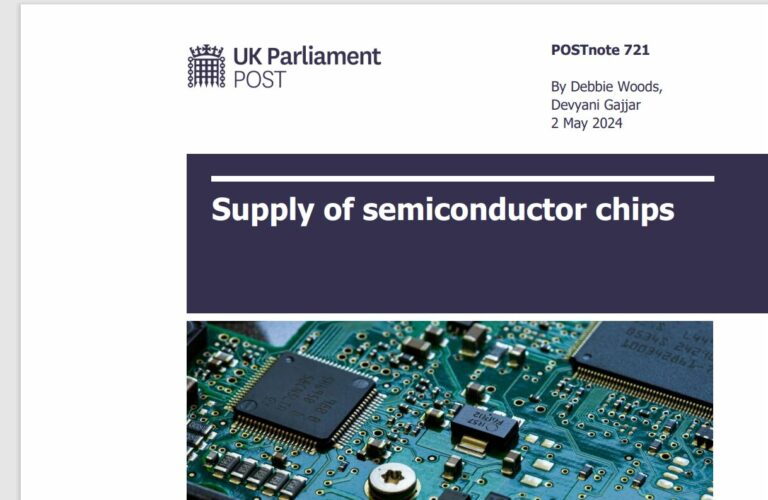Earlier this year, graduated UKESF Scholar Nikolay Momchev was named winner of the 2019 Innovation Challenge (sponsored by SEMTA), along with his partner on the project, Tze Liang Chee, at The Telegraph‘s STEM Awards. The annual awards took place in London and were hosted by mathematician and broadcaster Rachel Riley.
Nikolay said, “The Innovation Challenge was about introducing more robotics and automation to the UK industry. Me and a couple of friends noted that this coincides with fears about labour shortages in the food industry connected to Brexit. After a lot of brainstorming we decided on replacing strawberry pickers with robots and created a concept for an efficient picking process.”
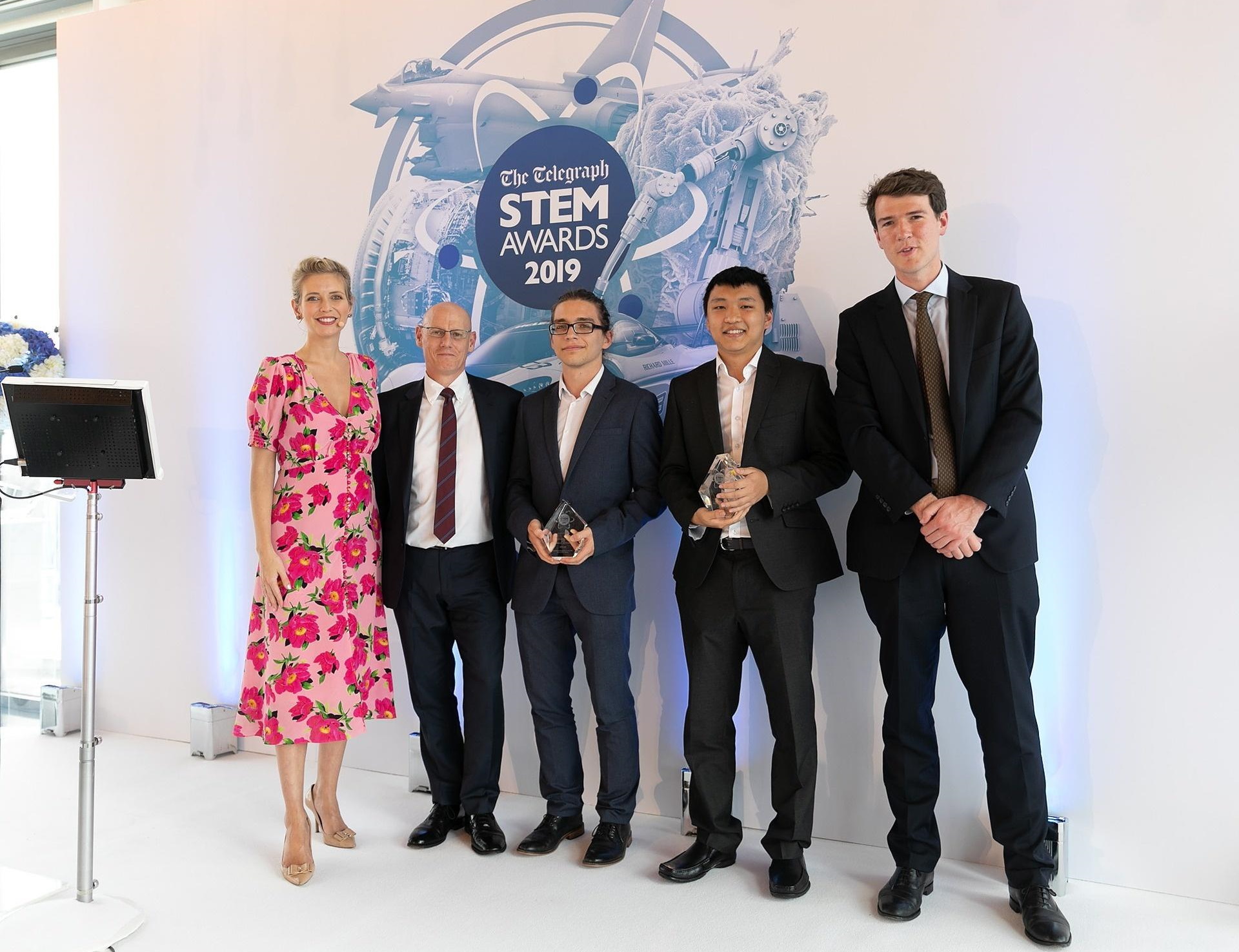
Rachel Riley (left) with Nikolay Momchev and Tze Liang Chee (centre) © The Telegraph
According to the article on The Telegraph website, “The winning strawberry-picking robot promises to bring efficiencies to an industry yet to address automation and could be adapted for use in rubbish collection … a novel way to help tackle labour shortages and food waste in farming. Their bespoke design for the UK’s £600 million-plus strawberry market uses an internal conveyor belt, customised gripper and camera to help locate, pick and pack the ripest crop while minimising bruising.”
Nikolay and Tze Liang explain their project in more detail in this video produced by SEMTA:
Nikolay and Tze Liang hope to take their idea to the next stage now that they have graduated and are embarking on careers in the Electronics sector, and ultimately bring their invention to market.
Nikolay studied MEng Electronics and Electrical Engineering at the University of Edinburgh, graduating with a First Class degree in 2019, and was sponsored by Allegro Microsystems through the UKESF Scholarship Scheme. Find out more about Nikolay in the following profile he provided during his time as a UKESF Scholar (2016–19):
What appeals to me about Electronics
When I was thinking about my future degree, I was concerned with finding a challenge, a complex and rewarding career, as well as making myself futureproof. I knew that Electronics is all of those, but it’s more. There’s a lot of creativity behind it. And a lot of trying things out. It gives you the tools to create things to complement your hobbies or just to see if you can.
Why I chose Allegro
I chose Allegro for two main reasons. The first reason was the atmosphere. It felt very comfortable and relaxed during the interview. During my placement, I enjoyed that a lot and was happily surprised by the effort made to keep us comfortable and healthy while working. Everybody was nice and working there was enjoyable. The other reason was the potential to try a lot of different things and see what kind of engineer I want to become.
My placement and its value
During my summer placement I did digital verification, analog design and simulation, IC layout. I wrote models for analog cells and simulated mixed signal designs as well. I got to learn and play with a lot of industry tools and there were always people I could ask for help when I needed it. I think this kind of rotation will be invaluable both for my future career choices and for deciding what courses I want to take in my studies.
My interests
In my free time I enjoy a lot of things – playing the piano, reading all kinds of fantasy and sci-fi books, playing games. I also enjoy learning about history – I often spend hours on Wikipedia looking at random facts. I like to keep active as well so I go swimming and during my placement I picked up cycling as well.
To find out about entering the 2020 Innovation Challenge, click here.
